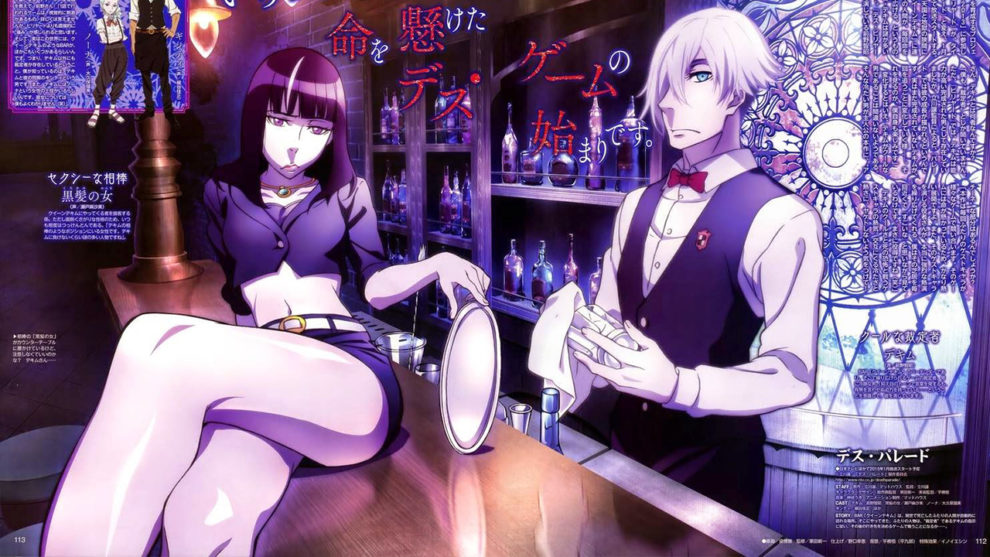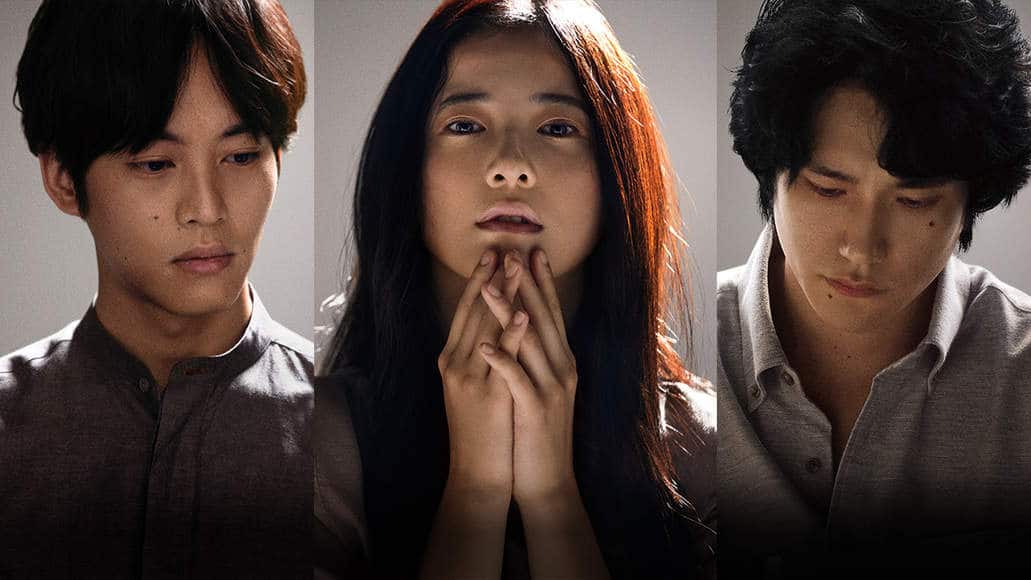Spawned from a an animation short titled “Death Billiards”, which was originally produced by Madhouse for the Young Animator Training Project's Anime Mirai 2013 and released on March 2, 2013, “Death Parade” is a rather unique title, both in terms of presentation, but mostly, due to its intensely philosophical context.
Buy This Title
When people die, and before their soul is sent for either reincarnation of banishment in the void, they have to pass through one of many mysterious bars that are situated in a tower that exists in the border between life and after-life. These bars are run by entities known as arbiters, who appear as bartenders, but whose real purpose is to have the dead (who always come in pairs) participate in games, that eventually reveal their true characters, thus allowing the arbiters to decide on their soul. The series follows one such bartender, white-haired, green-eyed Decim, who runs the Quindecim bar, eventually with the help of a human girl, who is placed there by Nona, Decim's boss, for unknown, initially reasons.
The narrative unfolds in two axes. The first one is of episodic nature and focuses on the people who are to be judged, all of which start by having no recollection of their past, and are somewhat conned into participating in the games, as Decim does not reveal the fact that they are dead when they visit the bar. The games, who include darts, pool, cards, bowling etc, can occasionally be very sadistic, with each player's success causing pain to their opponent, with the pain serving as both a tool to make them remember their past life and realize that they are dead, and for the arbiter to judge them through their reactions under extreme conditions. Also very interesting is the pairing of individuals, which includes a potential murderer and a policeman, a seemingly loving couple, an idol and a fan, and many others, most of which are eventually revealed as something rather different than what they appeared in the beginning.

The second axis revolves around the people running the show, with each episode revealing more about their past, their current role, and the whole concept of the bars and their function. The appearance of other barmen, the role Decim's assistant plays, the plan Nona has and the role of Oculus, a being that manages the arbiter system and is close to God, are revealed gradually in the most intriguing fashion, through an approach that retains the mystery from beginning to end.
Furthermore, the combination of the two axes results in a number of social and philosophical comments that stress the richness of the title's context. In that fashion, the anime deals with crime and punishment, admonishing judgment, what it means to be a human and the connection of this concept with death. In combination with the people judged, the series also deals with guilt, the concepts of revenge and vigilante justice, obsession, love, and many other topics, all of which are intricately embedded in the narrative.
Yuzuru Tachikawa handles the whole concept masterfully, while his inclusion of a few humoristic and a number of brief action/violent scenes, provide a rather welcome relief from all the philosophy.
The characters in the series, and particularly the two bartenders are also very interesting, with Decim being captivating, especially in the few moments where his completely cool and distant facade breaks down, either by surprise or some sort of realization. The fact that he seems to know exactly what he is doing creates an intriguing antithesis with his assistant's enigmatic purpose, while the fact that their interaction makes the former to question things and the latter to realize them, is one of the best parts of the narrative.
Shinichi Kurita's character design portrays the protagonists in a rather occidental appearance, with Decim bordering on the Victorian, and his assistant to the gothic lolita, while the rest of the characters are equally distinguishable. The fact that only one of his eyes is showing at all times, also works quite well, giving him a rather mysterious essence, also reminding of a Cyclops of some sorts.
Perhaps the sole fault of the narrative is that a number of questions that arise are never answered, while the future of the protagonists remains quite uncertain after the ending of the series, perhaps due to a potential second season, that does not seem to be probable though.
The animation, as is usually the case with Madhouse works, is exceptional, with the movement of the characters being highly realistic, both in the calm and the intense moments. The ice-skating close to the end, however, is where this aspect finds its zenith. The backgrounds are artfully drawn, adding to the whole stylized approach of the title, with the same applying to the whole concept of the cocktail bar, while the mannequins that appear all over the place intensify the sense of eeriness the setting emits.
“Death Parade” is definitely a “heavy” title, particularly due to its deeply philosophical context and the general lack of action, which deems it almost impossible to binge. However, this is also where its true value lies, in one of the most intelligent and well-presented titles of the last decade.
















